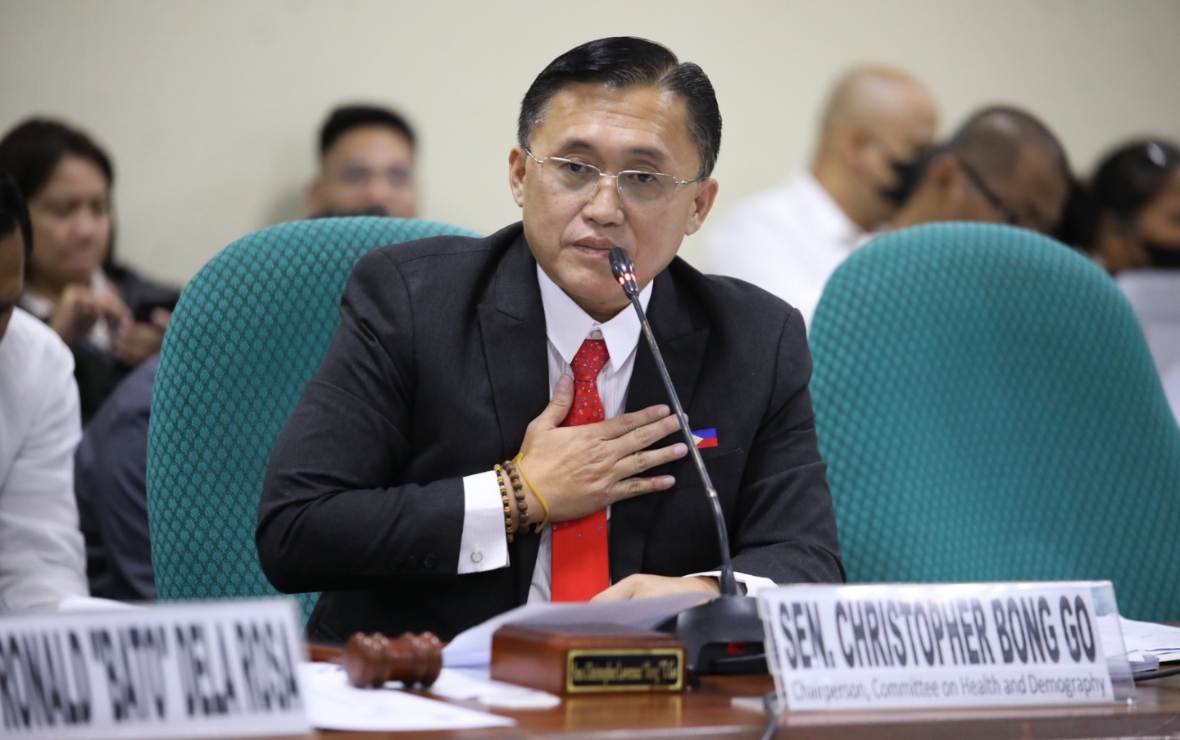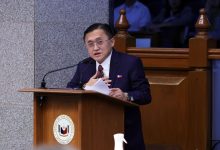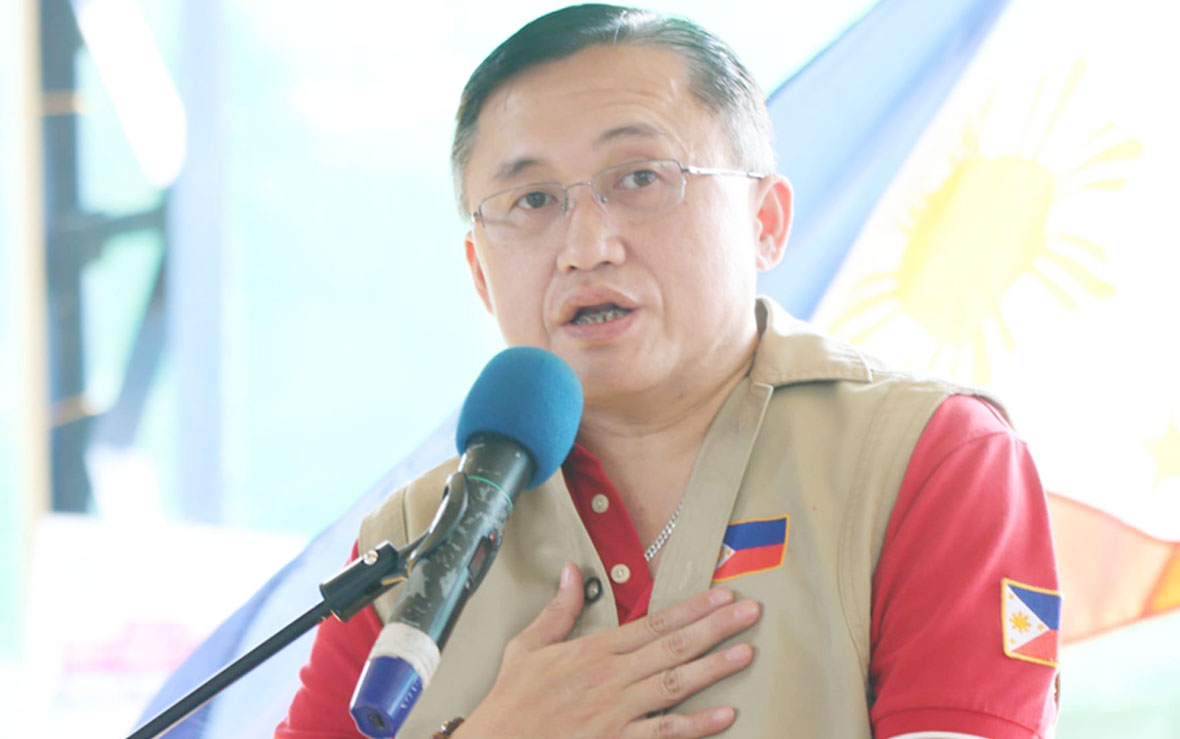SENATOR Christopher “Bong” Go, Senate Committee on Health Chairman, vows to hold the Department of Health (DOH) accountable if harm comes to even a single patient who is refused medical attention especially from government hospitals.
On Tuesday, April 30, the senator sternly warned the DOH during the recent Senate health committee hearing he presided that was part of a series of inquiries looking into the current state of the public health system.
“You should stand by your memo na walang matatanggihan na pasyente rito. Dahil ‘pag merong namatay na pasyente rito dahil sa kahirapan, malaki po ang pananagutan niyo po sa ating mga kababayan. Magsasalita talaga ako rito araw-araw kung meron pong namatay na pasyente dahil natanggihan at dahil po sa kahirapan na wala silang matakbuhan at tinanggihan po ng inyong opisina,” said Go.
In the hearing, Go shared the dire situation of a patient in Ozamiz City, Misamis Occidental, who was at risk of having his oxygen supply cut off due to financial constraints.
“Kausap ko ‘yung doktor, papatanggal na lang daw niya ‘yung oxygen dahil wala na lang siyang pambayad sa private hospital. Paano kaya natin matulungan ito through the MAIP program? Isipin niyo dahil sa oxygen… papatanggal na lang niya, malalagutan siya ng hininga dahil sa kahirapan,” Go shared.
Medical Assistance for Indigent Patients (MAIP) is the DOH program that provides financial assistance for medical care to indigent and financially incapacitated patients. Malasakit Centers provide patients convenient access to avail of this program.
No less than DOH Secretary Ted Herbosa attended the hearing where Go pressed on the integrity of the DOH’s promise in fulfilling its mandate to properly implement the Malasakit Centers Law which Go principally authored and sponsored in 2019.
“You were under oath several times during (previous) hearings. Sabi niyo, tutulungan niyo ang mahihirap. Sabi mo, susuportahan mo ang Malasakit Centers at ipagpapatuloy mo dahil nakakatulong ito sa mga mahihirap, Go reminded Herbosa.
There are now 163 Malasakit Centers established nationwide, which have assisted more than ten million Filipinos, as reported by the DOH. Malasakit Centers serve as one-stop shops that consolidate the medical assistance programs of various government agencies, including DOH, PhilHealth, Philippine Charity Sweepstakes Office (PCSO), and Department of Social Welfare and Development (DSWD).
“You issued a memorandum that all patients must be accorded the services they need in Malasakit Centers. Secretary Herbosa, you were under oath nung sinabi mo na suportado mo ang Malasakit Centers,” recalled Go, referring to the DOH Department Memorandum 2023-0235 issued by Herbosa, which mandates that all patients at Malasakit Centers receive the necessary services.
“I will stand by my commitment at ang 2024 allotment ng gobyerno para sa Medical Assistance for Indigent and Financially Compromised Patients ay PhP58 billion po,” Sec. Herbosa responded.
The DOH top official even affirmed how “effective” Malasakit Centers are, saying, “Umiiyak nga ang mga pasyente, nakakatanggap ng tulong galing sa ating office. So maganda ang nagagawa ng Malasakit (Centers) Act,” as elaborated by Herbosa.
Other resource persons at the hearing, including DSWD Project Development Officer Artemio Bautista and Malasakit Center Program Office Director Luz Jordana Jose, discussed the centers’ operational realities and success stories.
Jose discussed the current staffing problems encountered by DOH in operating the centers, “Right now, nasa 69% pa lang din kami. Unfortunately, we received several resignation letters from appointed Job Orders.”
Meanwhile, Bautista reported that there are still vacancies, especially in the four newly launched centers and one at the Veterans Memorial Medical Center in Quezon City.
In response to the staffing issues, Go called for immediate action to fill these vacancies, emphasizing the urgency of ensuring that no Filipino is denied access to medical assistance due to understaffing. Previously, Go also called on these agencies to help address unemployment in the country by offering available vacancies to those seeking job opportunities.
The Senate Health Committee also asked DOH to submit a comprehensive plan for the year detailing the projected expansion of Malasakit Centers across qualified public hospitals nationwide. Exercising his oversight functions, Senator Go emphasized the need for monthly staffing and operational progress updates to ensure every Filipino in need is able to avail of medical aid from government.
The discussion also delved into utilizing the substantial 2024 budget of PhP58 billion allocated to the DOH’s medical assistance program for indigents. DOH Undersecretary Emmie Liza Perez-Chong reported that only 34% of the funds had been utilized so far.
Go then stressed that the program must be made more readily available for indigent patients seeking government assistance, emphasizing that it is the right of every Filipino to be provided the necessary medical attention they need from this program intended for them.
Usec. Chong cited efforts of expanding partnerships with private hospitals to ensure that the medical assistance program could support services there, reflecting on the existing 481 private hospitals with Memoranda of Agreement with the DOH.
Senator Go requested detailed reports on the utilization of the funds, emphasizing that no patient should be turned away from seeking medical assistance from the government given the availability of public resources intended to assist them in their medical needs in accordance with existing laws.









